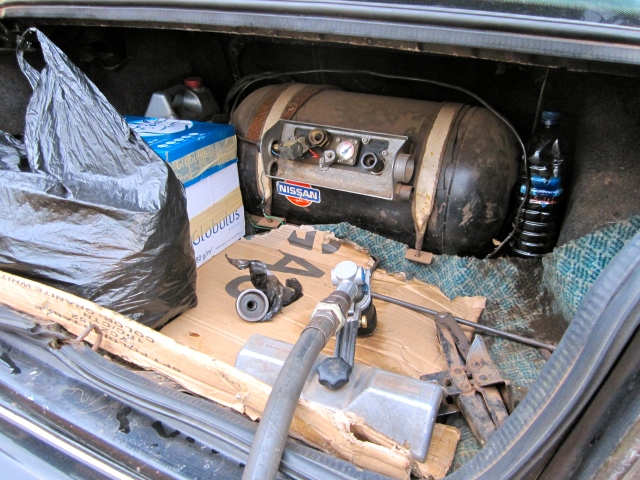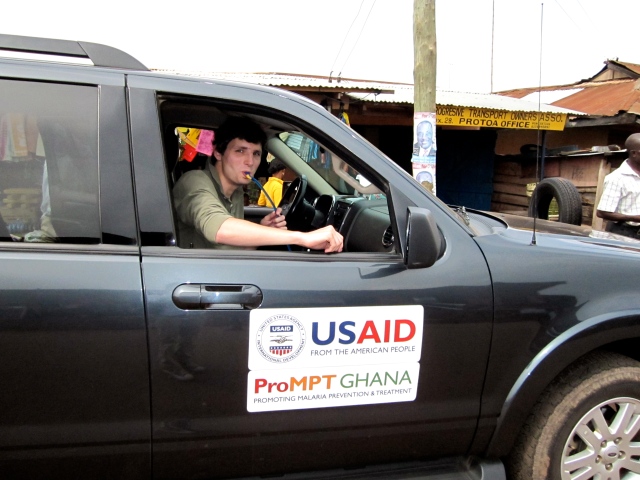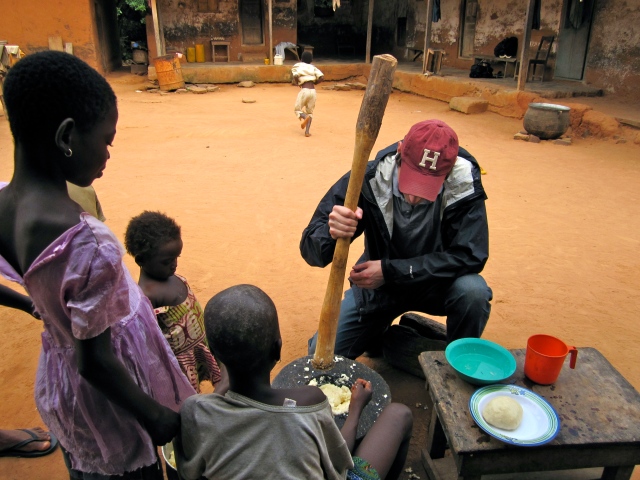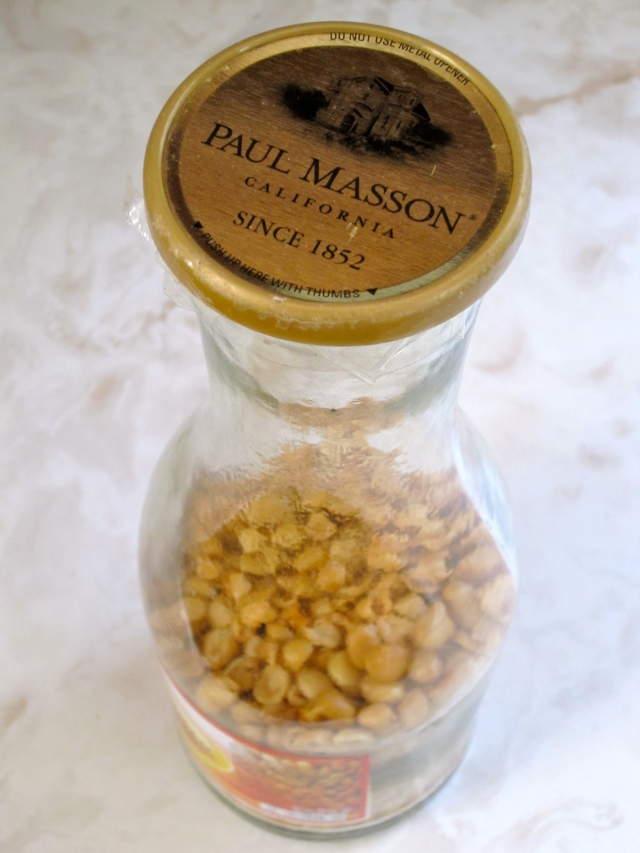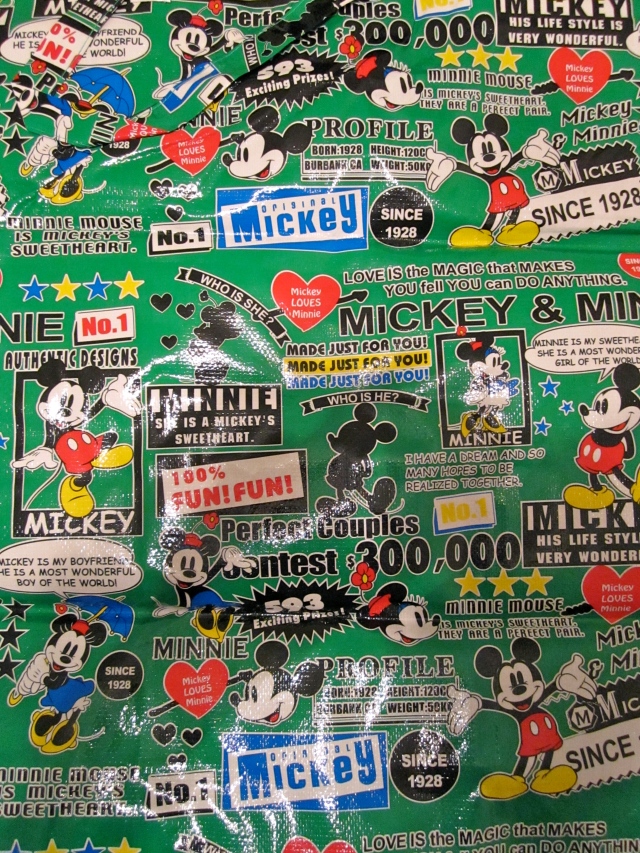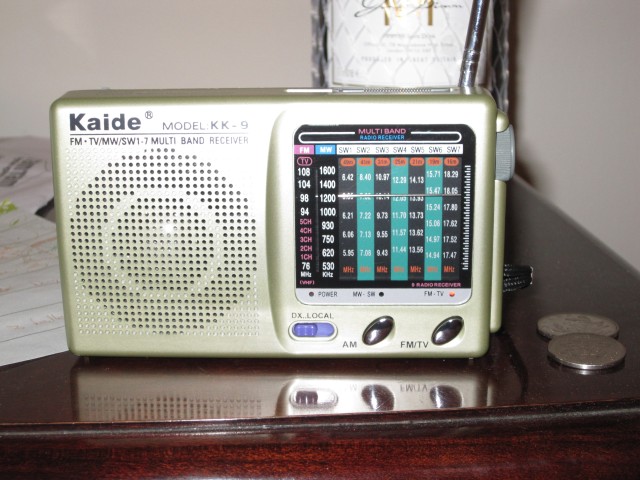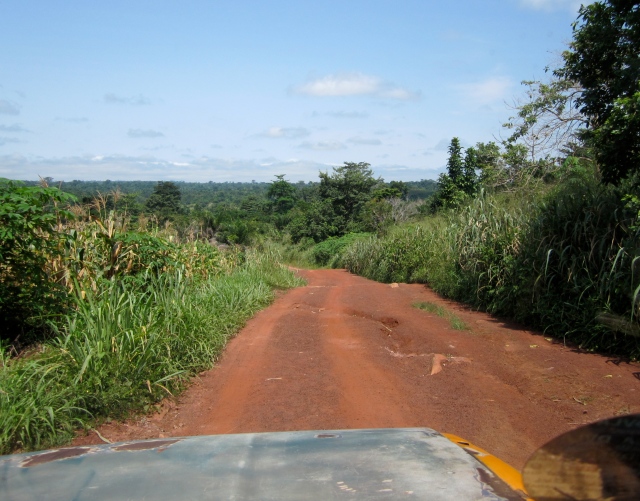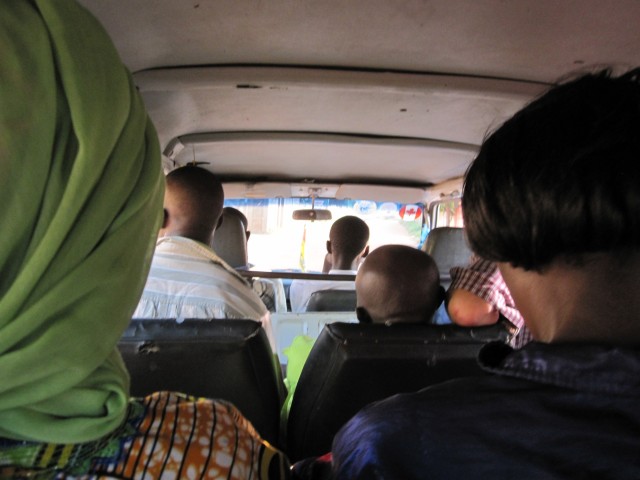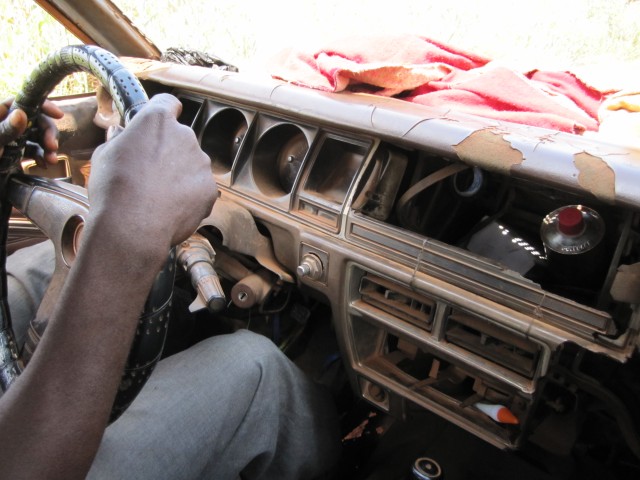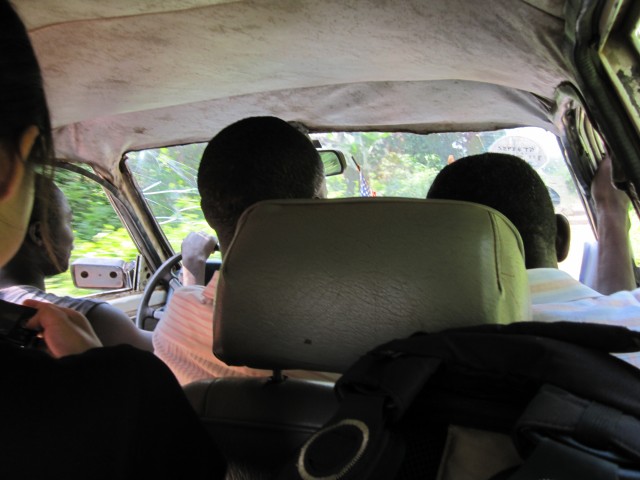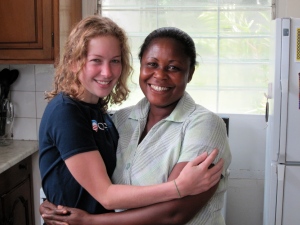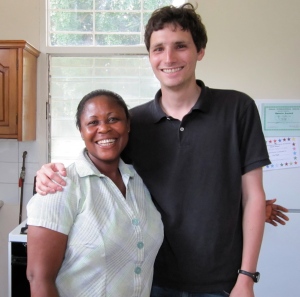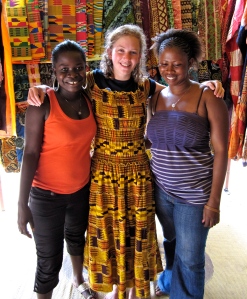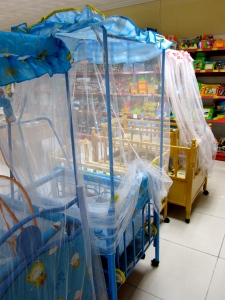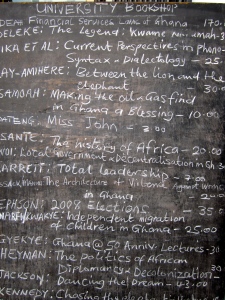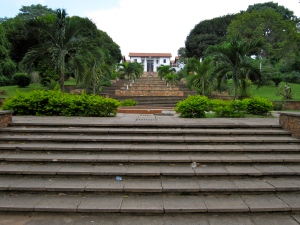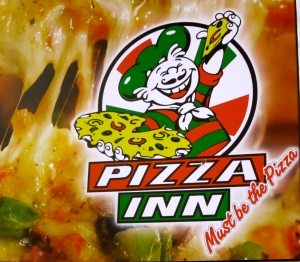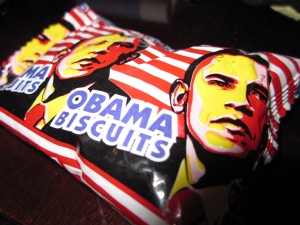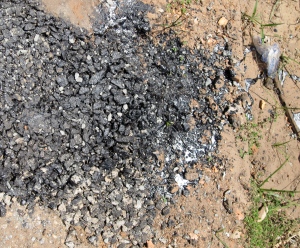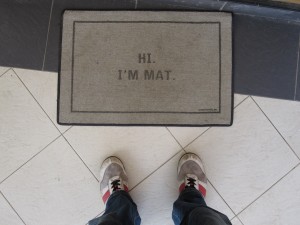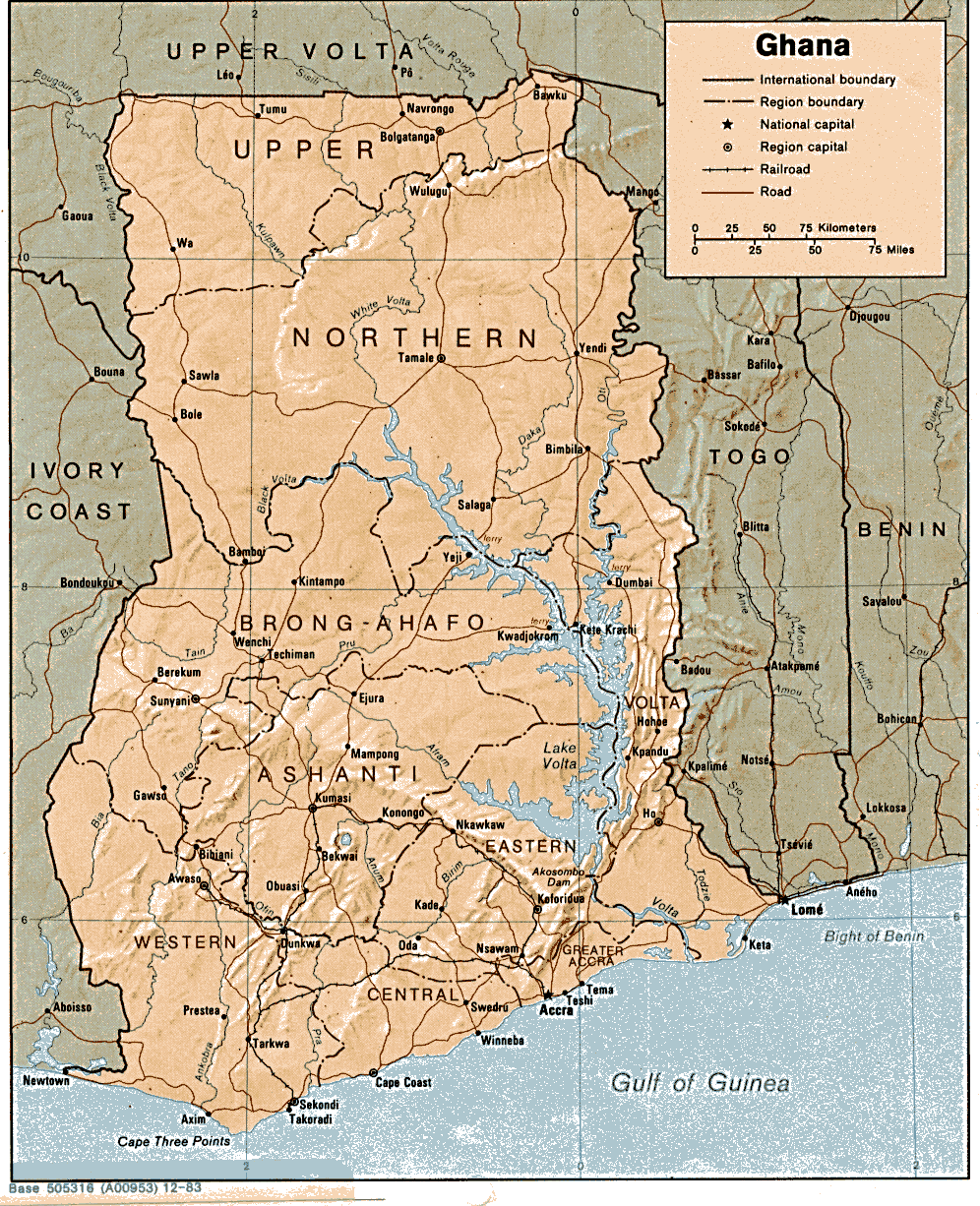Julia and I, having completed the distribution, are heading home! Inspired by Vilas’s recent post, I thought I’d list the things I’ll miss most about Ghana (in no particular order).
Coke. I will miss African Coke made with sugar cane and served in glass bottles. Minerals, as soft drinks are ironically called in Ghana, just taste better here. Part of it is the increased refreshingness that comes with any cold beverage when consumed under the equatorial sun and some of it is the sugar cane used instead of corn syrup. Did I mention that a Coke on the street is about 35 cents?
The children. Our work took us to very rural farming villages in the Eastern Region that are far away from the cosmopolitan city centers. I’ll miss the little kids that sprinted towards our car as we pass screaming “obruni” and waving their hands violently back and forth. I’ll miss waving back. I’ll miss trying to communicate with them in my horrible Ghanaian English accent. And I’ll miss their enormous, kind, innocent smiles.
Fanmilk. Without going into too much detail, Fanmilk is the greatest company is Ghana. They produce a series of frozen iced snacks that are sold largely from bicycles with a cooler chest above the front tire and a meat pie display case over the back. Somehow these things stay frozen rock solid and are distributed everywhere. There are three varieties: Fanice (very creamy vanilla ice cream), Fanyogo (strawberry yogurt – the healthy choice), and Fanchoco (more like iced chocolate milk than ice cream). All varieties come in a sealed plastic bag. You bite the corner off and enjoy. I’ll miss assessing my mood and going with the iced treat that bests fits. I’m in a Fanchoco mood right now.
The taxi drivers. I’ve come to really enjoy the whole taxi experience in Ghana over the last two months. At first I hated it because I hate taxis in the USA. Now, I enjoy the whole event of taking a taxi from the initial mandatory bargaining phase to the information phase where I pose 1,000 questions about Ghana culture or whatever. Most of the stuff I learned about Ghanaian politics, the education system, and the armed forces came from conversations with taxi drivers.
Waakye. Oh, waakye. You broke me after I had you in a tro-tro station in Asesewa but I still love you. I’ll miss the perfect combination of spaghetti noodles, red beans and rice, chicken sauce, pepper, cole slaw, fried plantain, and corn flour. So tasty.
Radio. I listened to the radio in Ghana much more than I watched Ghanaian TV. I’ll miss failing to understand what’s being said in Twi or pigeon English despite serious concentration. I’ll miss the news reports on BCC World Service Africa. Most importantly, I’ll miss the super tacky radio branding call signs and hokey sound effects that the DJs couldn’t resist playing over their reggae tracks. PS today I heard a song whose chorus was, “America, America. Break the neck of this apartheid.”
Feeling special. Perhaps this is best for last. As a white, male American, I almost never feel in the minority. I’ll miss feeling different and special in Ghana, instantly worthy of conversation because of how I look. Exotic. It’s pretty shallow, but it’s the truth.


